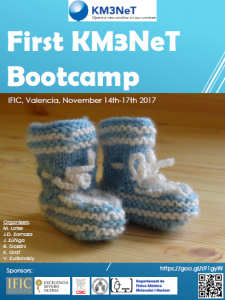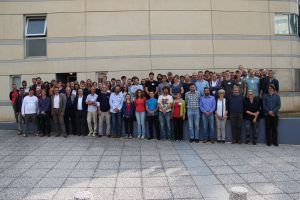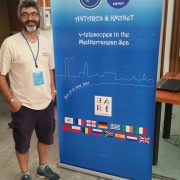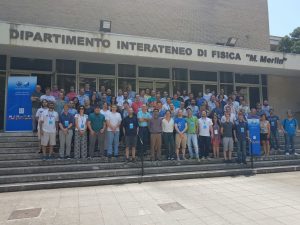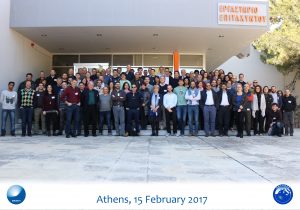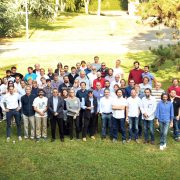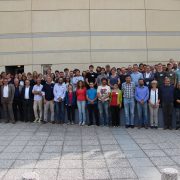 This week, 2-6 October 2017, researchers and engineers of ANTARES and KM3NeT met in Marseille, France for their yearly Fall meeting. The Collaboration meeting was organised by the colleagues of the ANTARES/KM3NeT team of the CPPM research institute for particle and nuclear physics. A week full of science and technology reports and discussions including the presentation of the first data of the recently deployed first detection unit of the ORCA detector offshore the coast of Toulon, France.
This week, 2-6 October 2017, researchers and engineers of ANTARES and KM3NeT met in Marseille, France for their yearly Fall meeting. The Collaboration meeting was organised by the colleagues of the ANTARES/KM3NeT team of the CPPM research institute for particle and nuclear physics. A week full of science and technology reports and discussions including the presentation of the first data of the recently deployed first detection unit of the ORCA detector offshore the coast of Toulon, France.
Colleagues of the IceCube Collaboration and from the GVD Lake Baikal Collaboration will join during the weekend for the yearly MANTS meeting of the GNN Global Neutrino Network.

